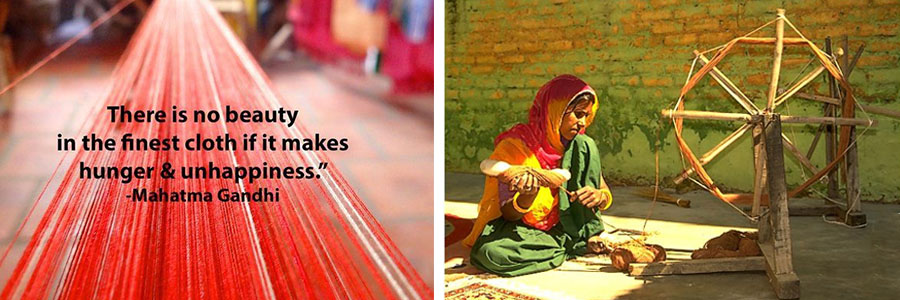Khadi
Khadi or Khaddar is a term for handspun and hand-woven cloth primarily made out of cotton from India, Bangladesh or Pakistan. The cloth is primarily woven from cotton and may also include silk, or wool, which are all spun into yarn on a spinning wheel called a charkha. It is a versatile fabric, cool in summer and warm in winter. In order to improve the look, it is sometimes starched to give it a stiffer feel.

For India, Khadi is not just a cloth, it is a whole movement started by Mohandas Karamchand Gandhi. The Khadi movement promoted an ideology - an idea that Indians could be self-reliant on cotton and be free from the high priced goods and clothes which the British were selling to us. The British would buy cotton from India at cheap prices and export it to Britain where it was woven to make clothes. These clothes were then brought back to India to be sold at hefty prices. The khadi movement aimed at boycotting foreign goods including cotton and promoting Indian goods, thereby improving India's economy. Mahatma Gandhi began promoting the spinning of khadi for rural self-employment and self-reliance instead of using cloth manufactured industrially in Britain. in 1920s India, thus making khadi an integral part and icon of the Swadeshi movement.
Advantages and benefits of Khadi
Provides employment and hence food to poor people who spin and weave Khadi cloth.
It is made of cotton, so farmers get money
It is eco-friendly
It is breathable
